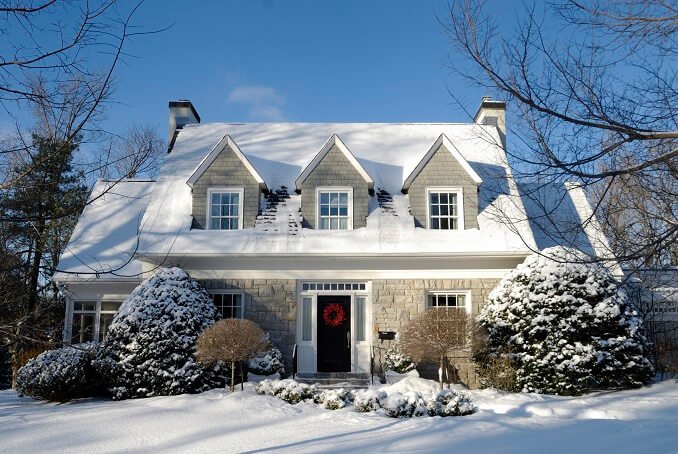By Jane Marsh | Contributing Writer
Here’s a look at 10 tricks to help.
-
Install a Smart Thermostat
Do you have a manual thermostat? These older models can sometimes cause you to waste energy because you can’t program them to match your household’s activity. If your heater runs periodically while you’re at work, you should replace your current device.
Look for smart thermostats that use a schedule to know when to heat your home. These gadgets offer many helpful features, so you can rest assured that you won’t waste money or energy. As a result, you should enjoy a comfortable and eco-friendly home.
-
Seal Windows and Doors
If your house feels especially chilly, you might need to apply a sealant to your windows and doors. These spaces often have cracks and gaps that let in cold air. Fortunately, you can create a warmer indoor environment with tools like caulk and weather-stripping.
Consider different methods for both areas so you don’t have to crank your heat anymore.
-
Try Different Light Bulbs
Did you know that LED light bulbs use 75% less energy than incandescent light bulbs? There’s a big chance you and your family spend more time indoors when it’s cold. Therefore, you should make sure to light your house with efficient light bulbs. Use LEDs whenever your current ones burn out to lower your electricity bill.
-
Insulate Your Water Heater
Sometimes, you might notice that hot water takes longer to flow through the tap than cold water. This occurrence can be a little annoying, especially in the winter months. Thankfully, you just have to buy a water heater blanket kit to insulate your water heater. As a result, you should conserve energy while you get hot water faster.
-
Decrease Phantom Loads
What’s a phantom load? If you leave your phone charger plugged into the outlet all day, you might not think twice. But those cables actually continue to use electricity even when you unplug your device. That’s called an “invisible power load” or a “phantom load.”
It’s easy to eliminate phantom loads. First, you should unplug any unnecessary cords. Then, you can use a power strip for other devices that you use more frequently, like your TV and computer. Turn the power strip off when you’re done to conserve energy.
-
Consider Other Energy Sources
It might be time to consider alternative ways to power your home. If you use a resource like natural gas, you should know that your system contributes to greenhouse gas emissions that warm the atmosphere. There are various clean alternatives you can consider.
For example, you might decide to install radiant floor heating as an efficient solution. It’s also possible to explore systems for your entire house. Either way, you’ll be able to create a more sustainable household.
-
Replace Your HVAC Filters
When was the last time you replaced your HVAC system’s filters? There can be several reasons why your energy bill seems uncharacteristically high — and your ventilation system might be the culprit. If your filters are old and dirty, you could even notice specific health effects.
It takes only a few minutes to replace your old filter, so you should be able to do everything by yourself. Be sure to choose the right filter so you don’t make a mistake. Then, you’ll be good to go for the next six months or so.
-
Wash Clothes with Cold Water
If you can remember, you should try to wash your clothes with cold water. This trick will help conserve warm water, which makes clothing shed more microfibers that end up in the ocean. It’s also a step that can help your items last longer. Keep in mind that hot water should still be used when you need to kill germs or remove dirt.
-
Use Natural Cleaning Products
If you’re spending more time indoors, you should consider using natural products to do any deep cleaning. These alternatives don’t use chemicals and toxins that typical household cleaners often include. This way, you can keep your indoor environment as healthy and clean as possible.
-
Start a Compost Pile
Are you looking for projects to keep you busy? If so, you might want to start a compost pile. This initiative essentially involves turning food scraps and other items into supplements for individual plants and entire gardens. Alongside regular soil, you can add compost to give your flora a healthy boost.
Use These Tips to Make Your Household More Eco-Friendly
If you want to save money and energy, you should strive to make your household more sustainable. There’s a link between being eco-friendly and conserving power — and that’s super important during colder months. Try these tricks to make your house greener.
About the Author
Jane is the founder and editor-in-chief of Environment.co where she shares practical tips on how to live a greener life.

